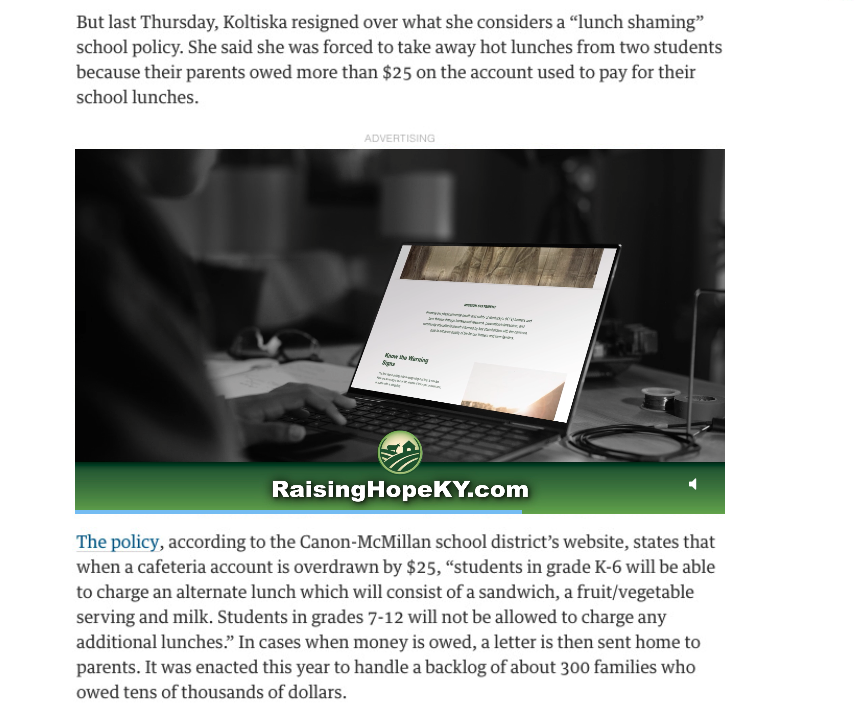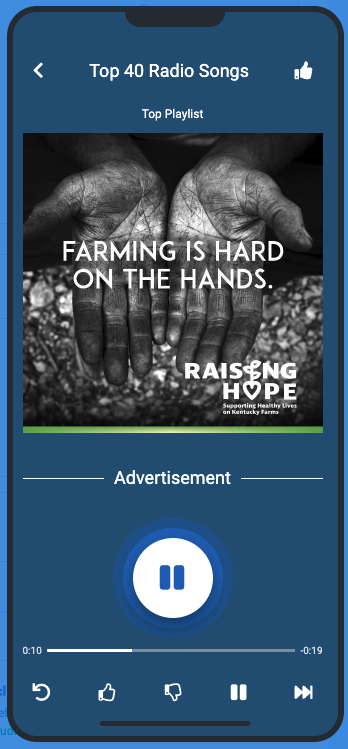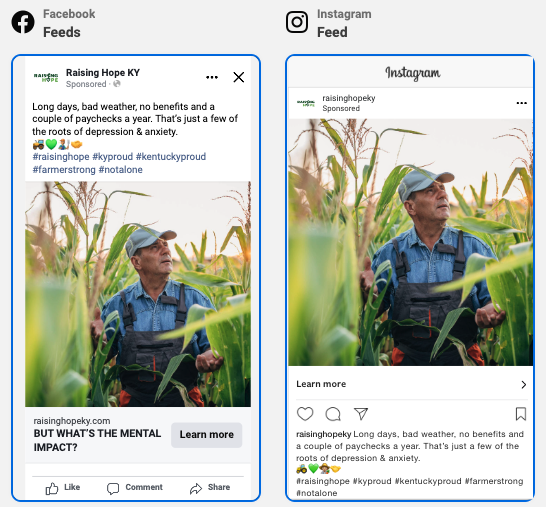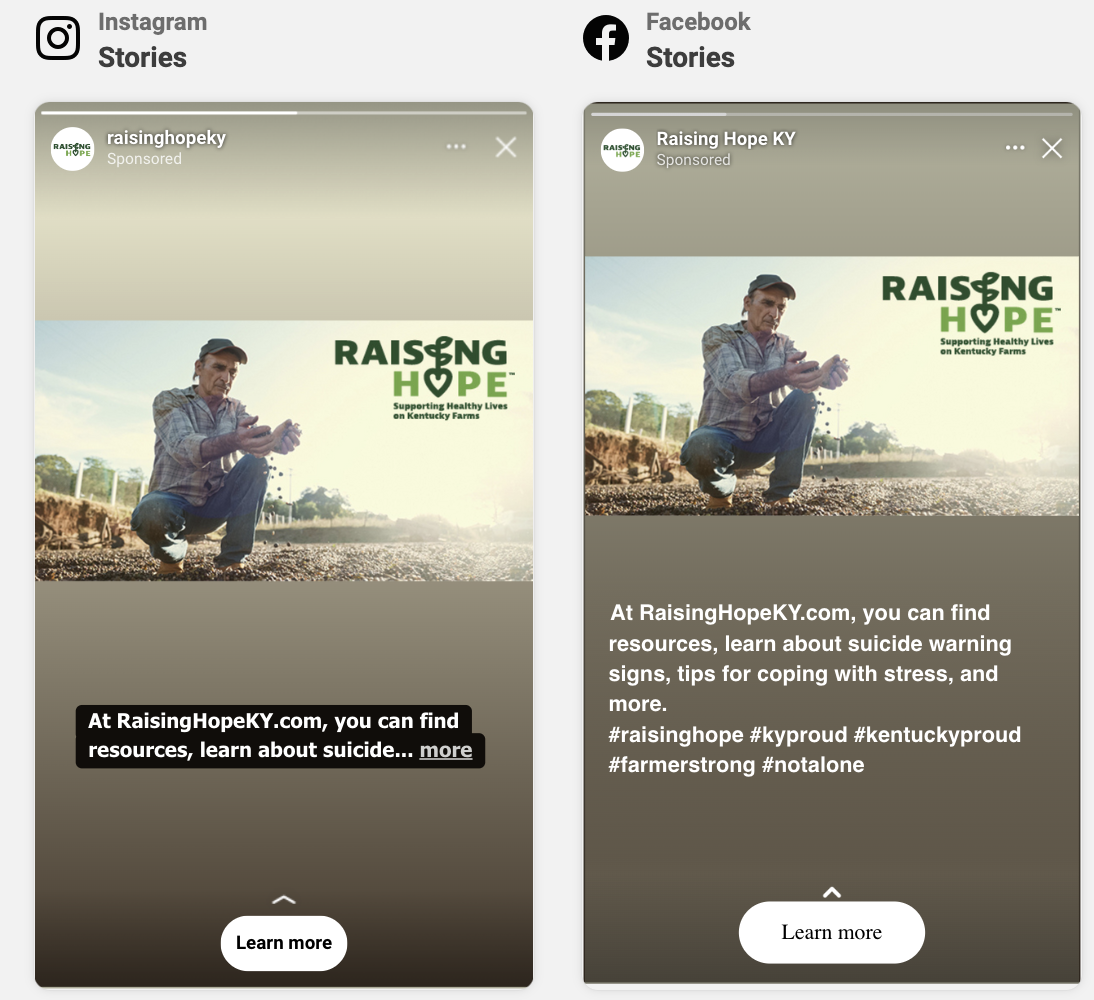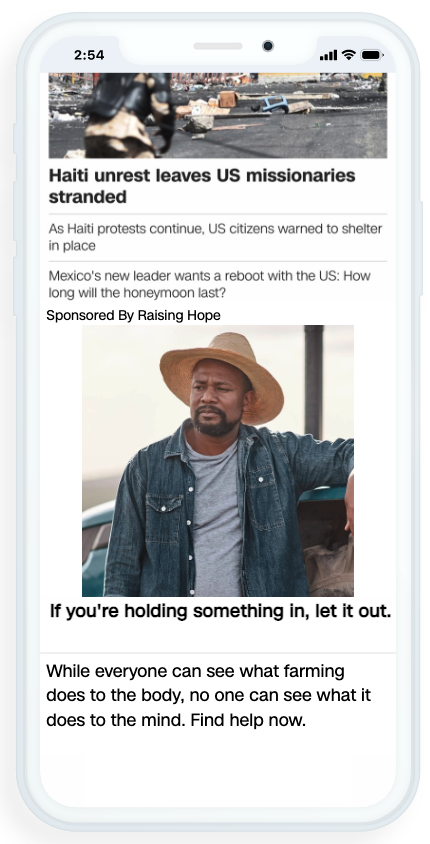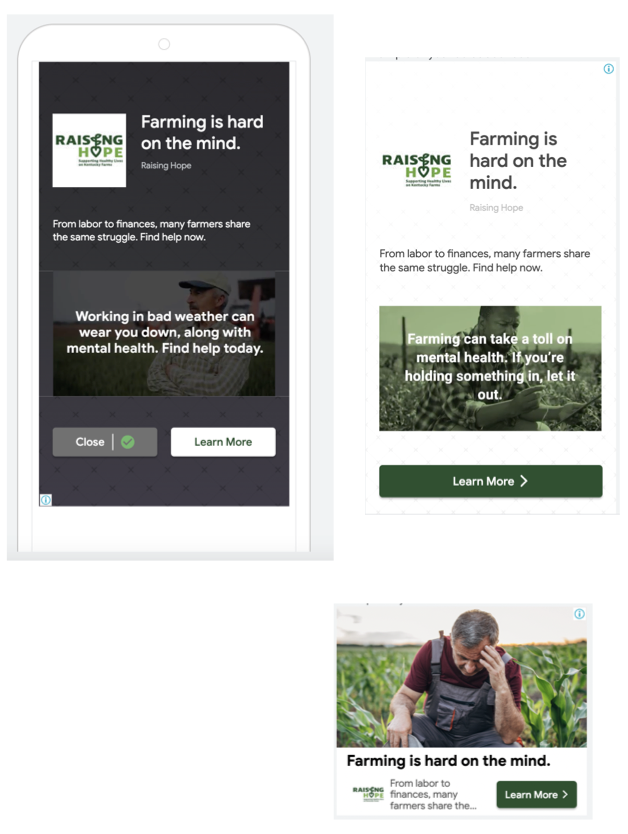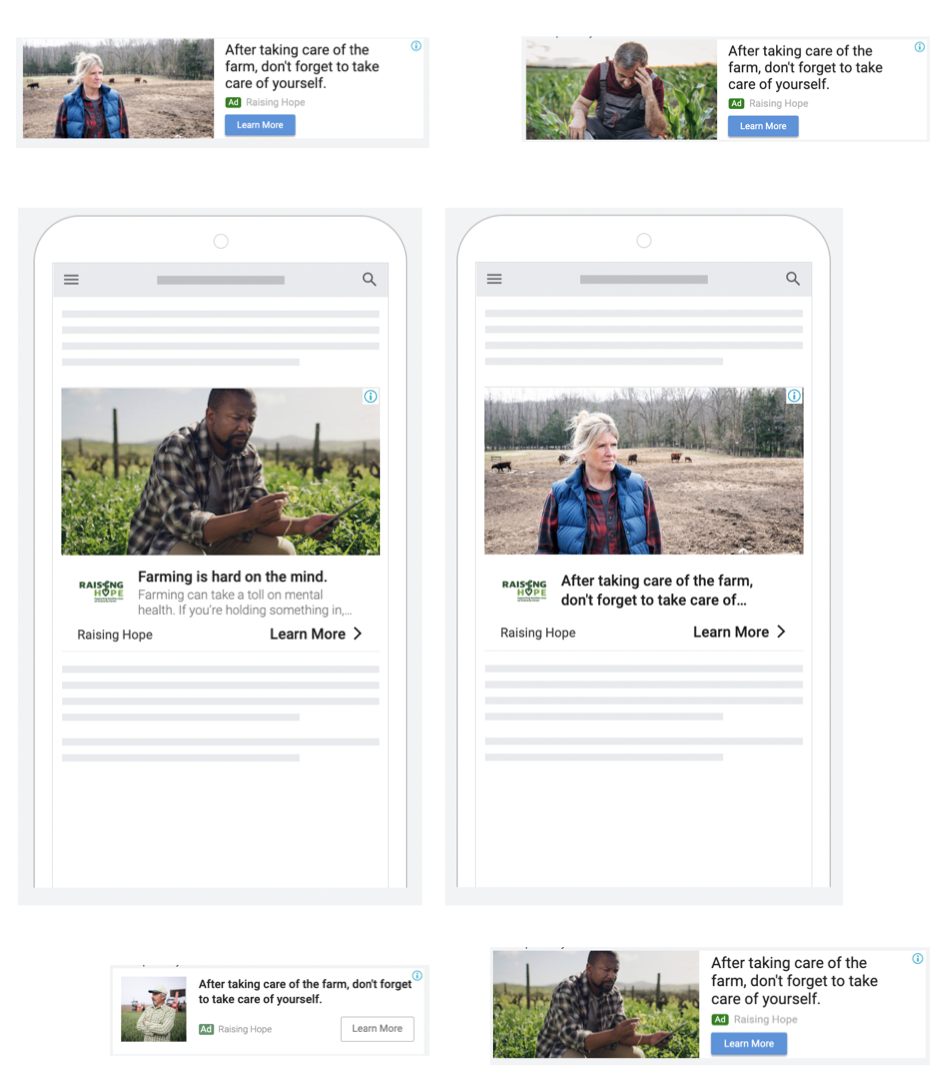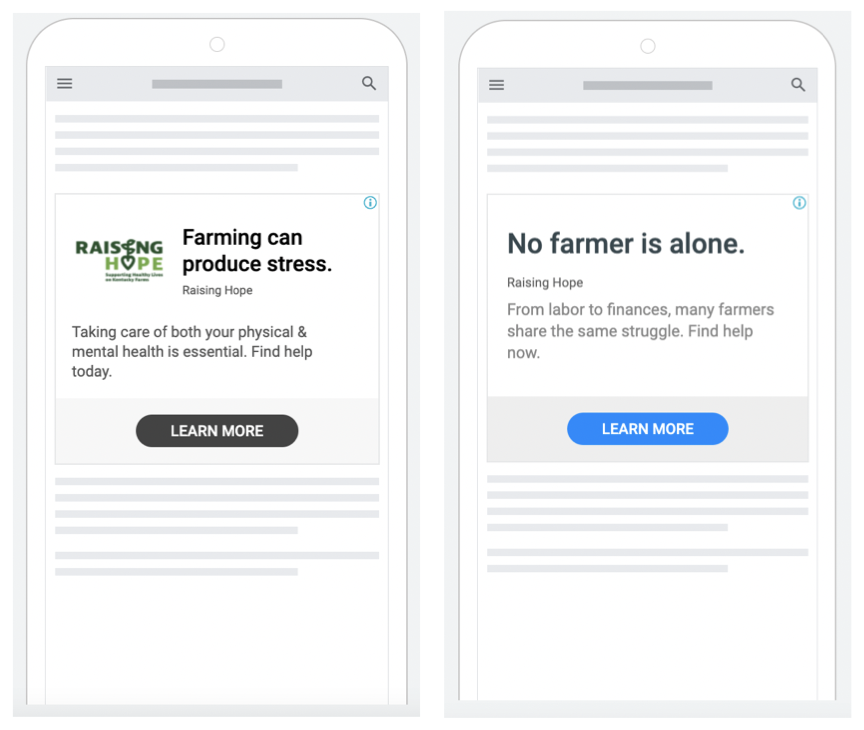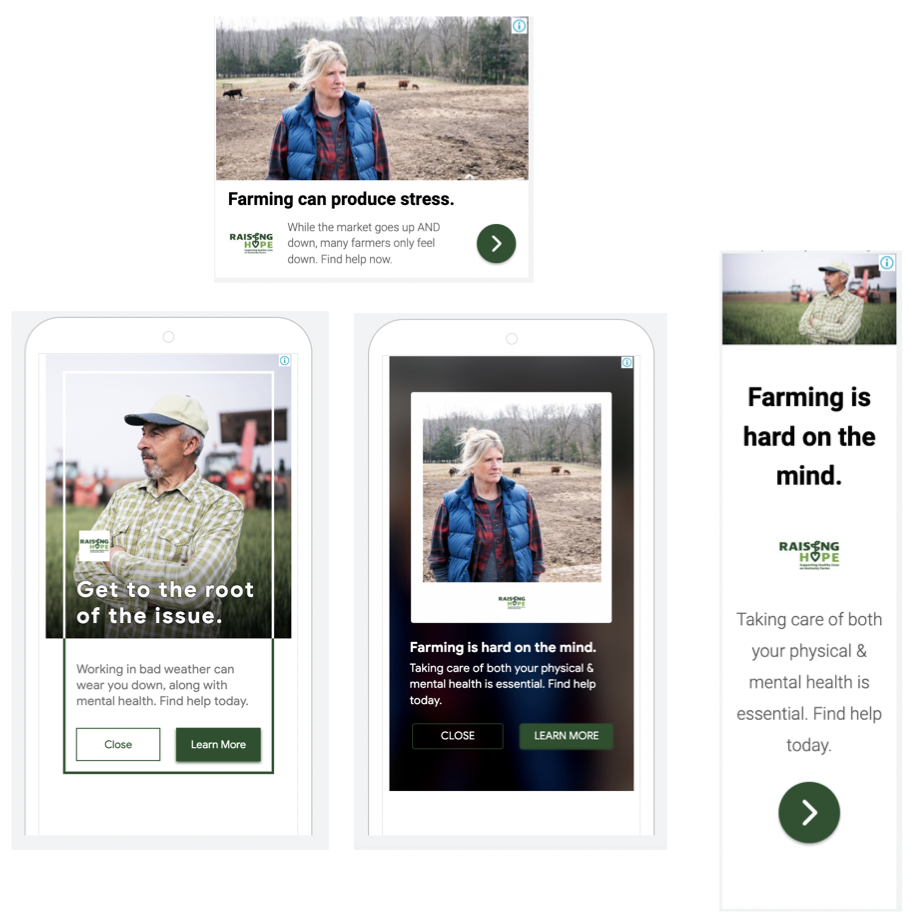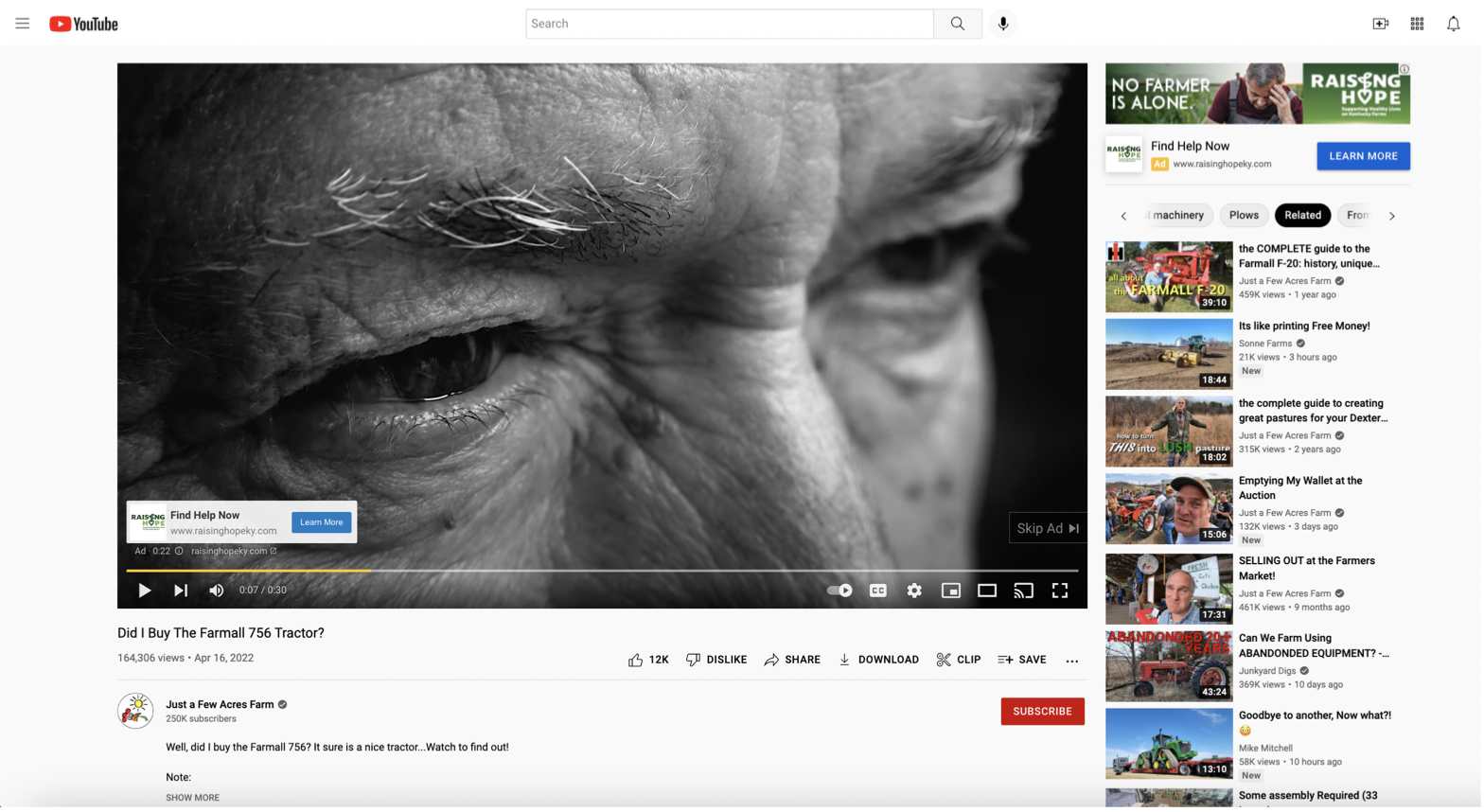DON’T LET MENTAL HEALTH GO OVER YOUR HEAD
May is Mental Health Awareness month, and as much as it is often overlooked, there’s one demographic that may be glossed over more than others: farmers. While acknowledging difficult working conditions that contribute to declining mental health, we’ll go over how Vimarc worked with Raising Hope to bring more awareness to these issues.
SITUATION
In 2021, Raising Hope was formed as a coalition to combat declining mental health among farmers in Kentucky. The national suicide rate was reported to be disproportionately higher in rural areas than in metropolitan areas. In 2016, the suicide rate among farmers was 36.1 per 100,000, and in 2020, the rate was 17.42. This may come as a surprise, but it’s quite understandable when you consider the common hardships.
Farmers work day in and day out with little rest
Harvesting depends on the weather, which can be inconsistent
Farmers receive only a couple of paychecks each year
Their work doesn’t come with health insurance
They feel the weight of not letting their family down
These and many other factors can drastically impact their mental health, leading to a last resort, especially when there’s no easy access to professional help. In 2022, Raising Hope reached out to Vimarc to help build awareness with a major communication effort.
CHALLENGES
To address this issue in an advertising campaign, there were several obstacles to overcome, which were mostly dependent on mindsets. Among blue-collar workers, various stigmas came into play:
A sense of masculinity to appear dominant and as though they can handle anything
Fear of being seen as “weak”
Misconceptions that mental health is not as important as physical health
There’s a strong sense to avoid talking about any issues despite many of them sharing the same feelings. This is most evident in senior farmers who were raised with the expectation to “man up” and get the work done.
And as an agency, Vimarc had to make sure all marketing materials communicated appreciation for what farmers do while letting them know it’s normal to have mental health issues and it’s okay to talk about it. It was important to come off as genuine, compassionate and to not simply tell them to “call this number for help.”
Also, access to social media or digital means wasn’t guaranteed so we had to consider a wide range of methods for the best reach.
SOLUTION
Considering our audience is more of the no-nonsense type, the messaging had to quickly communicate four things:
This is for farmers
Farmers are appreciated
The work is hard not just on the body, but on the mind
It’s okay to talk about it
The campaign had to be less flowery and clever and more straightforward, but still emotional. To accomplish this, we let the visuals take care of the emotional aspect and create an immediate connection by featuring physical parts of the body that tend to wear down from farm work. And then the copy lets the reader know it’s easy to see how the work impacts not only the body, but also the mind, and that they are not alone. Finally, we call them to action by telling them if they are holding something in, let it out, along with resources to contact.
Since most of the demographic were less likely to go out of their way to find help, the messaging had to pop in and get their attention wherever they were passively viewing or scrolling. We launched the campaign with various types of media for the best outreach:
Print
Social Media
Online Audio & Display Ads
Google/YouTube
RAISING HOPE CAMPAIGN
RESULTS
It turned out that the campaign was actually even more successful than expected. Surprisingly, the most successful methods were from social media and Connected TV (CTV), which you can see below. Digital advertising accounted for 78% of users who went to Raising Hope’s website over a six month period. Take note of this campaign, because if rugged farmers can let themselves be vulnerable with a professional, you can too.





